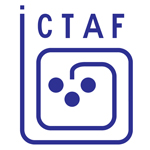Ehud Gal's Interview
Ehud Gal established O.D.F. Optronics after serving for more than 20 years in a variety of positions in the Israeli Military R&D units, during which he led activities in the area of Image Processing, Computer Vision and Expert Support Systems. His service included positions as Project Officer, R&D Division of the Israel Air Force, where he was in charge of cutting edge technologies in the electro-optics field, often applying creative and unorthodox methodology. He reached the senior position of Scientific Deputy to the Head of DDR&D (defense Directorate for R&D) where his responsibilities included the analysis of current and future requirements of the defense arena with an emphasis on identifying technological gaps, forecasting technological trends and negotiating and processing contractual agreements for Defense R&D with local and foreign industries. He holds a B.Sc. from the Technion in Industrial Management and an M.A. from the National Security College in national security and defense industries.
Q. Can you envision major developments in your field that could be considered as wild cards that are particularly relevant to the EU research and/or may dramatically affect the ERA vision?
Active manipulation to control the atmosphere / weather. Controlling the weather and parts of the atmosphere might have a major affect on the life on earth at a broad spectrum.
Monitoring and manipulation of vast areas for nuclear, biological, chemical agents, "Atmosphere windows", and underground burying and secreting of agents.
"Atmosphere windows" refer to getting above the atmosphere with detectors on space-borne platforms in order to observe at wavelengths other than the visible and RF regions.
The dramatic impact could be the atmosphere windows control and manipulation ability. The main wild card could be the convergence of the various abilities such as control, detailed observation and upon that manipulation of the vision, climate, light, etc.
The ability to monitor and control nuclear, chemical or biological agents could be abused and yield major threats on safety, homeland security, defense issues, etc. The same manipulations but in a different way could be created regarding the underground. Changing the underground content while hiding and burying materials, agents, etc with or without remote sensing control and manipulation could have major positive and negative effects.
Q. Can you identify any causal relationships between the topics you mentioned?
The combination of detection and manipulation of nuclear, biological and chemical agents in the atmosphere as well as underground with remote sensing and activation.
Q. Which topic should be given top priority in the EU research?
Atmosphere detection and manipulation.
Interviewer (Institution)

ICTAF - Interdisciplinary Centre for Technological Analysis & Forecasting (Israel) - Founded in 1971 at Tel-Aviv University, the major university in Israel, ICTAF is a leading institute in technology foresight, technology assessment and policy-support research. Its main mission is to help policy-makers reach informed decisions based on technology's role in economy and society and to serve as a think-tank for future policy planning. The multidisciplinary center taps the expertise of world-class scientists at Tel-Aviv University and other research institutions to create a core body of researchers with deep knowledge in a diverse range of fields. Its clients include governmental departments, hi-tech industries and international organisations. ICTAF researchers are involved in a wide range of subjects with special attention to issues related to emerging technologies and their impact. ICTAF has led the Israeli Foresight Study towards the 21st century, covering all leading science and technology fields in Israel. Other studies dealt with Nanotechnology, Quantum technologies, security-related technology assessments, and emerging trends in e-Government, Knowledge Management, education, employment and leisure. ICTAF is very active in the international community and has participated in several EC-funded projects, as a coordinator or as a workpackage leader. Recent examples are a Foresight study in the EU network of excellence “Nano-to-Life” (future developments in Nanobiotechnology), coordination of the FP6 project ELOST (which includes foresight on the future of e-Government), major workpackages in the FP5 project KINX (Knowledge Management solutions for SMEs), a leading role in the FP5 project e-Living (“Life in a Digital Europe”), and the EU project “Platform Foresight” (public research policies and priorities in Europe).
iKNOW has been featured in the media and several research projects:
DIE ZEIT (Germany), Financial Times (Germany), El Heraldo (Colombia), Prospective Foresight Network (France), Nationalencyklopedin (Sweden), EFP - European Foresight Platform (EC), EULAKS - European Union & Latin America Knowledge Society (EC), CfWI - Centre for Workforce Intellience (UK), INFU - Innovation Futures (EC), Towards A Future Internet (EC), dstl - Defence S&T Laboratory (UK), EFSA - European Food Safety Agency (EU), Malaysia Foresight Programme (Malaysia), Bulletins Electroniques more...